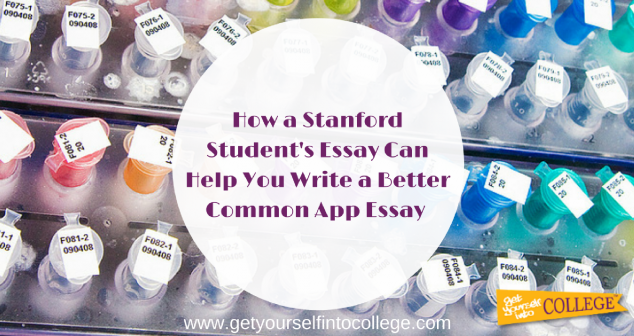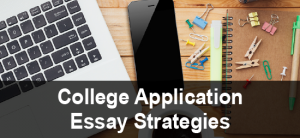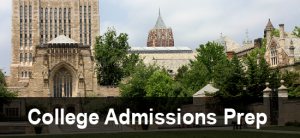Writing your college application essay can be really challenging because you have to put your own experience into perspective, explain its significance, and find just the right style and structure for your narrative.
That’s not easy, and there’s no simple formula to follow.
So how can you learn to write great essays for your college applications?
Get into the habit of reading really good personal essays. . .no matter where you find them.
You don’t have to go out and buy one of those 50 Greatest Application Essays Ever Written books.
In fact, I encourage you to avoid most of these books.
Why?
Many of them featured dated essays.
They include essays that make it seem like it’s still groundbreaking to write an essay about how Dr. Seuss or even Harry Potter changed your worldview. It’s not!
WHAT YOU CAN LEARN FROM A STANFORD STUDENT’S ESSAY
I encourage you to read a great essay I came across while reading the New York Times.
It was originally titled “In Pursuit of Answers One May Not Want to Know,” but when they made Emma Pierson’s essay available online it was retitled: “Knowing You Carry a Cancer Gene.”
Pierson is a senior at Stanford, so this isn’t a college application essay. However, her essay can help you learn many important things about the art of personal essays.
1. Notice how this Stanford student zeroes in on a specific experience. She focuses on discovering the implications of learning she carries the “BRCA1 mutation, which gives you a 98 percent chance of developing cancer.”
Great college application essays often have a very specific focus and narrow scope. You really want to take admissions officers deep into your experience so that they feel like they’re right there with you. If your focus is too broad, you run the risk of leaving admissions officers with a very superficial sense of who you are.
2. Check out how the writer uses this experience to explore the larger philosophical and social issues that are raised by this discovery. Explore how this revelation changes the way she lives and thinks about her life and the nature of knowledge.
COMMON PROBLEM IN COLLEGE APPLICATION ESSAYS:
A lot of students focus almost exclusively on the experience and don’t devote enough attention to the implications–to the way the experience has influenced their lives.
Let’s take a quick look at the wording of two of the new Common Application essay prompts (for 2017-2018):
“The lessons we take from obstacles we encounter can be fundamental to later success. Recount a time when you faced a challenge, setback, or failure. How did it affect you, and what did you learn from the experience?”
“Reflect on a time when you questioned or challenged a belief or idea. What prompted your thinking? What was the outcome?”
College admissions officers aren’t just interested in the specific experience. They want to learn more about your process of making sense of it and how it has influenced you.
The best application essays don’t focus on magical or simplistic transformations because that’s rarely how change happens. In general, I’ve found that the most compelling Common App essays tend to convey a student’s process of grappling with the experience and reveal more nuanced internal and external shifts they’ve experienced.
It’s really challenging to learn how to convey such shifts in a tactful way. Noticing how other talented writers describe them is a great way to learn.
3. The most compelling college application essays break the traditional rules of academic essays–especially in terms of the introduction and conclusion.
I tend to prefer brief opening paragraphs that plunge me right into a student’s experience.
Let’s look at how this Stanford student begins her article:
“I jogged into the Stanford Cancer Clinic with my boyfriend, the youngest people there by two decades. We stood there sweating and holding hands, a jarring sight in the sickly light.”
It’s just two sentences long, but it’s full of vivid details that set up the context and generate interest/suspense.
The structure of your essay needs to emerge in relation to your unique experience and perspective. That’s one of the reasons why writing personal essays is so challenging.
However, you can start developing strategies for shaping your narrative by exploring how writers like Pierson structure their essays.
YOUR NEXT STEPS
CLICK HERE to watch me critique a Princeton applicant’s supplemental essay or CLICK HERE to read the blog post version of the critique.
Need more help? CLICK HERE to learn more about my one-hour consultations.
Blog post image used: ©arjuna725/bigstock.com



